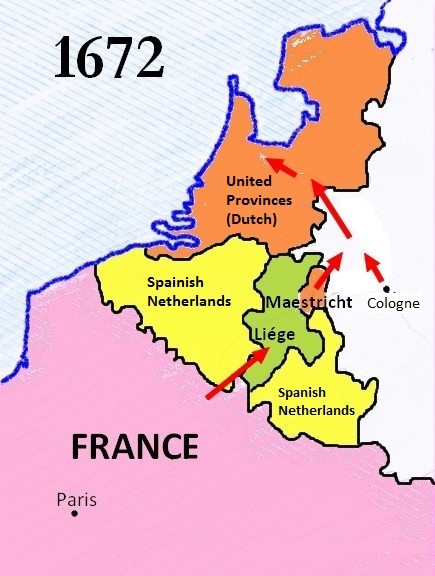|
Peace Of Nimeguen
The Treaties or Peace of Nijmegen (; ; ) were a series of treaties signed in the Dutch city of Nijmegen between August 1678 and October 1679. The treaties ended various interconnected wars among France, the Dutch Republic, Spain, Brandenburg, Sweden, Denmark-Norway, the Prince-Bishopric of Münster, and the Holy Roman Empire. The most significant of the treaties was the first, which established peace between France and the Dutch Republic and placed the northern border of France very near its modern position. Background The Franco-Dutch War of 1672–78 was the source of all the other wars that were ended formally at Nijmegen. Separate peace treaties were arranged for conflicts like the Third Anglo-Dutch War and the Scanian War, but all of them had been directly caused by and form part of the Franco-Dutch War. England initially participated in the war on the French side but withdrew in 1674, after the Treaty of Westminster. The Electorate of Cologne left the war in 1674, while t ... [...More Info...] [...Related Items...] OR: [Wikipedia] [Google] [Baidu] |
Franco-Dutch War
The Franco-Dutch War, 1672 to 1678, was primarily fought by Kingdom of France, France and the Dutch Republic, with both sides backed at different times by a variety of allies. Related conflicts include the 1672 to 1674 Third Anglo-Dutch War and 1675 to 1679 Scanian War. In May 1672, France nearly overran the Netherlands, an event remembered in Dutch history as the ''Rampjaar'', or "Disaster Year". However, by late July the position had stabilised, while concern over French gains brought the Dutch support from Leopold I, Holy Roman Emperor, Emperor Leopold I, Habsburg Spain, Spain and Brandenburg-Prussia. Previously an ally of France, Kingdom of England, England Treaty of Westminster (1674), exited the war in February 1674. Now facing a war of attrition on several fronts, Louis XIV of France instead focused on strengthening French borders with the Spanish Netherlands and Rhineland, while a coalition led by William III of England, William of Orange sought to minimise any losses. ... [...More Info...] [...Related Items...] OR: [Wikipedia] [Google] [Baidu] |

